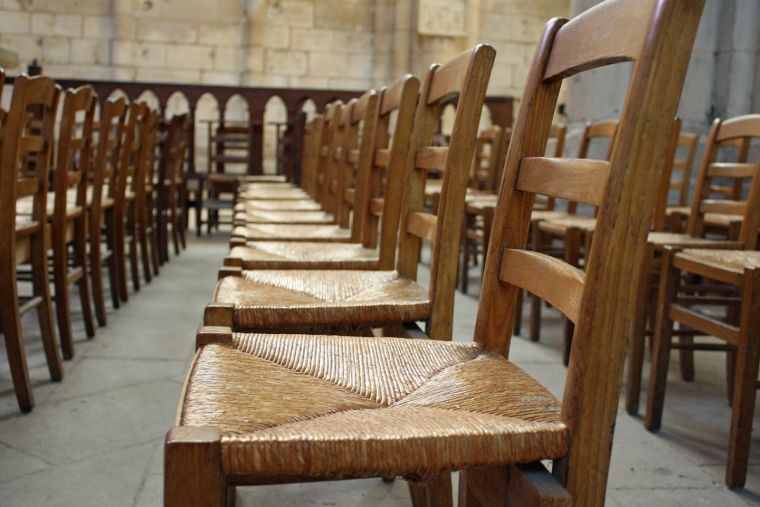Yes, he's the 'God of all comfort': but it's not what you think
I sat in a space about two feet square. That was alright until somebody needed to get past me. After about 45 minutes the service started. This involved standing up or sitting down at various points, which was easier said than done. And we were the lucky ones – we were under cover.

This was my first foray to Greenbelt a couple of weeks back. Ironically Greenbelt was much bigger and harder to navigate than the music festival I'd been to with my son the weekend before and at times, as an introvert, it was all a bit much.
Greenbelt is a Christian arts festival with loads of different elements. There are talks, performances and lots of things to visit and experience. Unlike other events and festivals I've been to it doesn't operate around trying to get everyone in one place at the same time. That made the Sunday morning communion service a bit interesting because it was a focal point that couldn't fit everyone in.
All of which forced me, as I squished into my small space, to consider why it was that I expected this, as an expression of church, to be comfortable.
My church has just got new chairs to replace the ones we've had for 40 years. They are comfortable and a lot easier to move and we'll just have to get over not having the Bible shelf on the back, which we all used to put our feet on. We make a big effort to make the building comfortable and welcoming, with a friendly face on the way in and a coffee at the end. This made a big impression on a friend who visited a while back, whose memory of church was of a cold, uncomfortable, unwelcoming building.
I think making the building a good place to be is essential. We wouldn't invite someone in to our homes, turn the heating off and make them sit on a rock hard chair. What that Sunday at Greenbelt made me think of was what happens when needs present themselves without warning.
That in turn caused me to look again at the story in Matthew 14 of the feeding of the 5,000. The first thing I noticed was that the story starts with Jesus having withdrawn to a quiet place to get over the grief of hearing that John the Baptist had been beheaded.
The term 'restorative niche' is a part of my family's language. It's used in the book Quiet by Susan Cain to talk about an introverts need to find some space – both me and my son need this to keep us sane. Jesus needed some space, he was having a restorative niche and then 5,000 people rocked up. Jesus cracked on, had compassion on them, healed the sick and then magicked up tea. Jesus saw beyond his own needs and met theirs.
One of the speakers at Greenbelt, Sam Wells, spoke about his church's work with the homeless and migrants. He quoted Matthew 25, when Jesus says when we serve others we serve him. What a challenge! I'd rather not deal with the stranger, the chaotic, the unfamiliar but I don't think that choice is open to me.
We are incredibly fortunate to live in a largely secure and comfortable age. We have advanced medicine and sanitation, we have air con and smartphones. It's easy to take all this for granted and to begin to see it as an entitlement, not a blessing. The sense that life is about us having the most pleasant time possible has pervaded our culture and can easily then infect the church. Let's be honest: if, for example, a bunch of homeless people turned up half way through a service our initial reaction probably wouldn't be one of delight. We'd be thinking of the disruption and safety and whether we've locked the collection in the safe. I'd be no less knocked off my stride than anyone else but I hope we'd correct ourselves, find them a cup of tea and invite them to join in.
That Greenbelt communion was chaotic but it worked because people made it work. They made space, helped each other through and got on with it. We realised it wasn't 'my space' and we had to think of others, not just what we wanted.
It wasn't comfortable but it did me good. Life is not supposed to be about holding on to what we have but about making it available and putting it to use.
When Jesus was challenged with meeting the needs of 5,000 people, he gave of himself and there was enough. I know there are people who ridicule the story, but my experience is that this is exactly what Jesus does – he offers resources beyond ourselves in a way that shows that it is possible for everyone's needs to be met.
Dave Luck is the author of 'What Happens Now? A journey through unimaginable loss' and blogs weekly on www.daveluckwrites.co.uk. Follow him on Twitter @dluckwrite or on Facebook at the 'Daveluckwrites' page.











